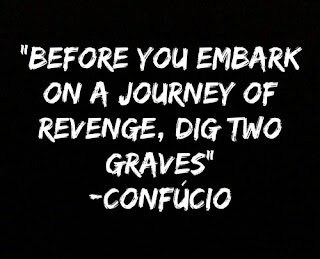Life getting you down? Learn to bounce back
 |
| There are opportunities beyond the winding road of life. |
“That which does not kill us makes
us stronger” – so the German philosopher Nietzsche famously said. Luckily, the
school of hard knocks isn’t the only way to build our resilience. There are a
number of tactics that can get us through tough times, help us to bounce back
and make us happier. Next time you are struggling, feeling stressed or stuck,
give one or more of these a try.
1.
Find something you can control (even if it’s small)
Often when we are struggling we can
feel overwhelmed or powerless. And it’s true: there are lots of things in life
that we can’t control, including big challenges such as redundancy or broken
relationships or bereavement. But taking small, positive steps in any area of
our life can have a ripple effect, increasing our sense of self-efficacy and
eventually enabling us to move forward in the problem area.
2.
Focus on what’s right
As a species, we tend to focus on
what’s wrong rather than what’s right. Psychologists suggest we developed this
“negativity bias” when we were hunter-gatherers, constantly surveying our
environment for dangers.
Of course looking out for risks is
still important, but we can benefit from paying more conscious attention to
what’s going right. In one experiment psychologists asked people to spend a few
minutes at the end of each day for a week, making a note of three things they
enjoyed, were pleased about or grateful for that day and the reason they found
these things good. At the end of the study, participants who did this were
happier than those who didn’t – and this effect lasted for as long as six
months.
This isn’t about putting on
rose-tinted glasses – it’s about a more balanced perspective. Good things
happen even on the worst days, even if these are as small as someone making us
a nice cup of tea, yet we often let them pass by without much attention.
Psychologists have shown that consciously focusing on these good things helps
to increase our experience of positive emotions. Over time this has a number of
benefits for our resilience and wellbeing as, for example, we become more open
to ideas, better at problem-solving and more trusting of others.
3.
Check your thinking
Albert Ellis, one of the
fathers of cognitive behavioral therapy, wrote that we are remarkably good at
disturbing ourselves – in other words, the way we think can undermine our own
resilience.
Let’s look at an example: the way we
think when things go wrong in our day-to-day lives. Leading psychologist Martin Seligman found that
the way we interpret the causes of everyday setbacks can have a significant
impact on our ability to cope, our physical health and our persistence in the
face of adversity. He also showed that we can learn more resilient thinking
styles.
Seligman looked at three key
dimensions to our interpretations:
Is it down to me? When bad things happen, resilient thinkers tend to focus on
causes outside themselves. For example, if they miss a deadline they will look
at the computer issues they had or the other pressing jobs they had to do,
rather than only beating themselves up for being late.
Advertisement
How long will this problem last? When things go wrong, resilient thinkers see it as transitory,
perhaps thinking: “It didn’t work this time, but next time it will be better.”
Someone with a less resilient thinking style might believe it will always be
that way: “It didn’t work this time, and it’s never going to.”
What other aspects of my life will
this affect? When something goes wrong in one
area of a resilient thinker’s life, they put boundaries around the issue,
limiting it to that specific area – for example: “I went the wrong way; I find
following directions hard.” We can undermine our resilience if we see the
problem as spreading out to everything: “I went the wrong way. That’s typical
of me – I’m no good at anything.”
This isn’t about being unrealistic
or not taking responsibility when problems occur, but about being realistic and
flexible in our thoughts about why these issues happened. If we are stressed or
down, we can all too easily fall into the trap of thinking that everything is
our fault, can’t be changed and trouble will spread to all areas of our life.
This makes us feel hopeless and can start a downward spiral towards lower
resilience and even depression.
So the next time something goes
wrong for you, pause for a moment and think realistically: how did I, others or
the situation contribute to this? What can I do that will help now or stop the
problem occurring again?
4.
Ask others to help
When we have problems, it is very
easy to feel isolated. We are bombarded by images of people with perfect lives
or who have achieved great things, which can make us feel we’re not good enough
or even ashamed that we are struggling. Remember the saying “Be kind, for
everyone you meet is fighting a hard battle inside” and don’t be afraid to ask
for help. We all have ups and downs, strengths and weaknesses, and connecting
with other people is a source of resilience.
Human beings evolved to live in
social groups. Our relationships with those around us are really important for
our wellbeing and resilience (and that of our communities). By asking for help
we are showing that we value and respect other people. Scientists are also
finding that the act of helping actually boosts the helper’s own wellbeing.
Showing our vulnerability makes others see us as human, making them feel more
able to ask us for help when they need it, so building the relationship. This
helps to increase wellbeing and resilience for both of you.
Your request doesn’t have to place a
burden on the other person – it could be as simple as asking them to listen,
share their experience, knowledge or ideas to help you move forward, or perhaps
make a connection to someone they know. You could even offer to help them with
something in return (that could help you too).
5.
Distract yourself
It often helps to take time out from
the things you are worrying about – even if it’s just a few minutes.
When we are immersed in a problem it
is hard to think creatively about ways to deal with it. How many times have
your best ideas come when you’ve been in the shower or tidying up? Our brains
are amazing organs – they are still working on issues even when we aren’t
consciously focusing on them. In fact, allowing time off from the thing we’re
grappling with can work wonders.
An effective ways of taking time out
is exercise. Not only does this give us a break from what we’re doing and our
worries; it’s also great for our minds. Anything moderately aerobic, such as
jogging or simply a brisk walk, has a physical impact on our brain, helping us
to think more clearly.
Much has been written about mindfulness,
and this can be very effective way to boost our resilience. Even a few minutes
can give us a little space from our worries and help put things in perspective.
Take time to laugh. We have already
looked at the benefits of positive emotions.
And finally, if you can’t get to
sleep because your mind won’t switch off, find a way to distract it – for
example, counting back from 100 in threes or going through the alphabet trying
to think of as many animals/actors/footballers (you choose the topic) for each
letter as you can.





